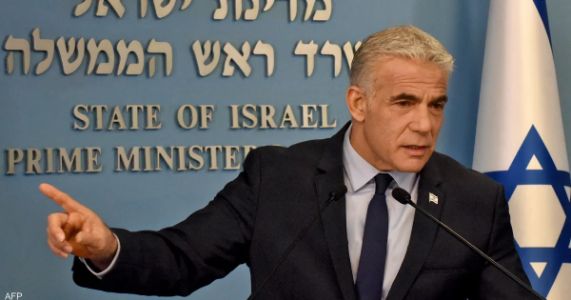
-
Published: 04 September 2022

At the beginning of the weekly Israeli government session, Israeli Prime Minister Yair Lapid said that his country had launched a campaign aimed at preventing the conclusion of the nuclear deal between Iran and the major powers.
On Wednesday, Lapid spoke with US President Joe Biden and said Israel opposed the deal.
Despite the counter-campaign, Lapid said that Israeli pressure was taking its toll. The United States took into account Israel's observations.
Yair Lapid said the campaign included contacts with the United States, with the participation of Mossad President David Barnaia, who said he would leave for Washington on Monday to meet with U.S. officials, as part of efforts to prevent the "dangerous" nuclear deal he appears to have concluded with Iran soon.
Labid said Barnaya's meetings with US officials were "aimed at clarifying our position on the risks inherent in the agreement."
He said that Israel's policy towards Iran would continue, but without breaking the tools, such as "providing intelligence"
credible ", so that Israel would be part of the process and without prejudice to the special relationship with the United States.
These statements by Lapid come despite Israeli estimates, reported by local media, that the signing of the agreement will not be imminent and will take time.
These estimates came after Tehran requested the closure of IAEA investigations into Iran's nuclear obligations.
Last Thursday, Iran sent its response to the European Union's latest text to revive the agreement by which Tehran restricted its nuclear programme in exchange for easing sanctions imposed on it by the United States, the European Union and the United Nations.
However, Washington quickly refused to link the two, Reuters reported on Friday, citing a Western diplomat who declined to give his name.
